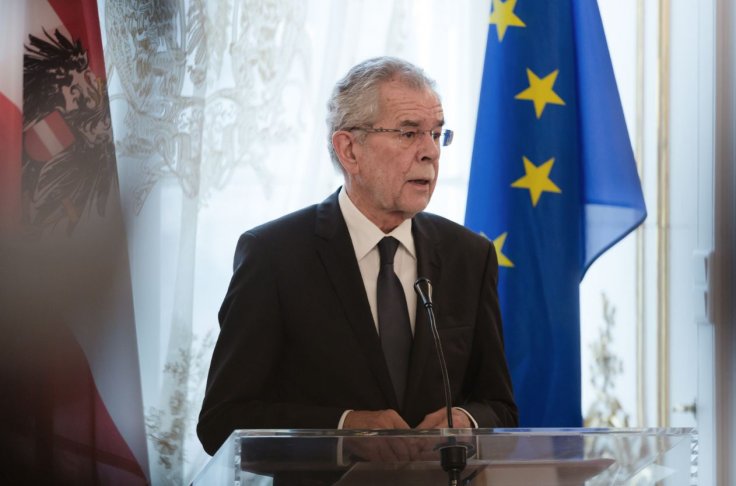A deal between Austria's conservatives and Greens to form a governing coalition includes banning headscarves in school until the age of 14 and preventive custody for potentially dangerous immigrants, several Austrian media reported on Thursday.
The measures are part of what conservative leader Sebastian Kurz describes as his tough stance on illegal immigration and "political Islam", aimed at appealing to his base but also to disillusioned former supporters of the far right, whose coalition with his party collapsed in May.
Kurz and Greens leader Werner Kogler said on Wednesday they have reached a deal that should make Kurz chancellor again and bring the Greens to power for the first time. They have said it includes strong measures on Kurz's core issues and will "ecologize the tax system".

The two parties were due to publish details of their agreement at 4 p.m. (1500 GMT) on Thursday. The parties have declined to provide details of their plan before then. The deal includes raising the age until which girls are banned from wearing a headscarf in school to 14 from around 10, media including newspaper Die Presse and broadcaster ORF said.
It also includes reviving a disputed plan for preventive custody of potentially dangerous individuals, even if they have not committed a crime, which was put forward by Kurz's coalition government with the far right after a fatal stabbing apparently committed by an asylum seeker in February.
"A lot of turquoise and a bit of green," tabloid Kronen Zeitung headlined its story, referring to the parties by their colors, saying the preventive custody plan is aimed at refugees. If confirmed, such measures will be hard for many Greens supporters to swallow, and the coalition deal must still be approved by the Greens' top decision-making body, the Federal Council, on Saturday.
While few expect the Federal Council, which comprises various within the party such as its local and national lawmakers, to block the deal, immigration and security are likely to be constant sources of friction within the coalition.
While Kurz has insisted on keeping his trademark hard line on immigration, the Greens have called for a fiscal overhaul to make products and services with a large carbon footprint more expensive.
Fewer specifics on environmental measures leaked on Thursday. Die Presse said carbon emissions would be made more expensive but there would be no carbon tax. Tabloid Oesterreich said that move would be gradual, quoting one coalition deal negotiator as saying: "But that is only phrased very vaguely."









